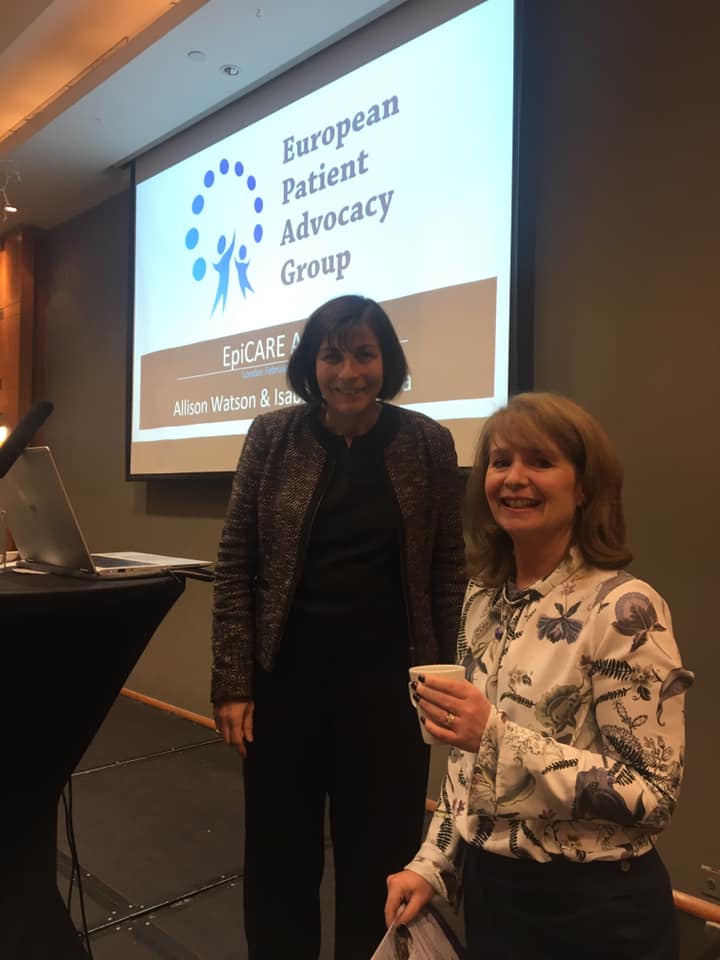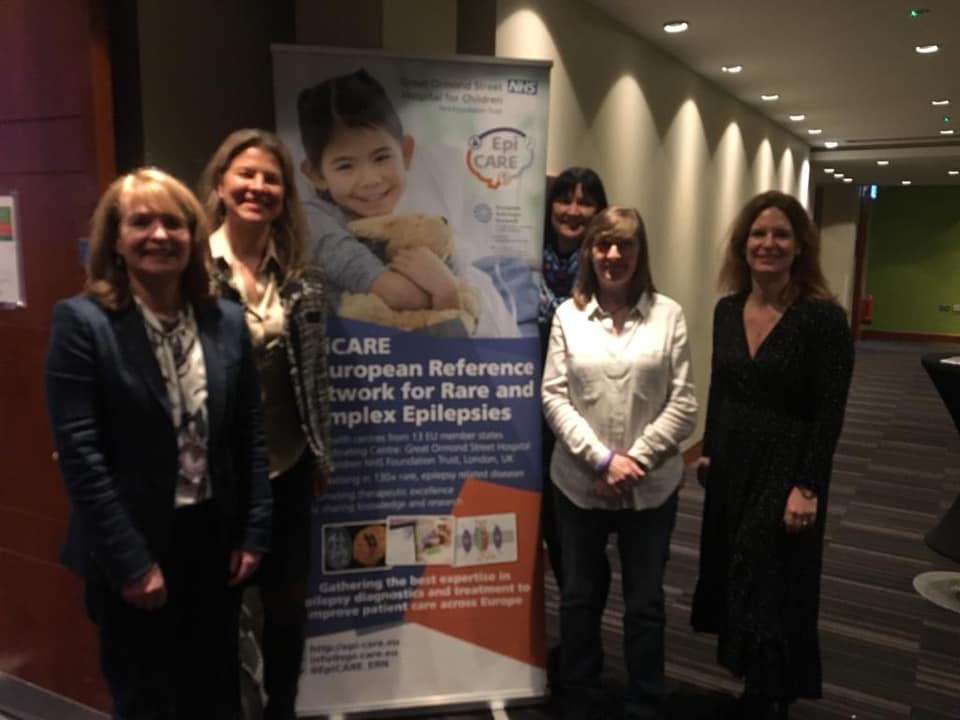EpiCARE News from Hope for HH UK
Annual General Meeting (AGM)
EpiCARE is one of 24 European Reference Networks established by the EU in 2017-18. ERNs operate as virtual networks involving specialist healthcare providers across Europe. They aim to tackle complex or rare medical diseases or conditions that require highly specialised treatment and a concentration of knowledge and resources. The ERNs are part of a broader EU strategy to make the national and European health systems more efficient, accessible and resilient. EpiCARE is the ERN for rare and complex epilepsies.
Pursuant to their governance criteria, ERNs must be patient-driven and to that end each ERN has an ePAG – a European Patient Advocacy Group. Hope for HH UK has recently become a member of the EpiCARE ePAG. We have also joined EURORDIS – a patient-driven alliance of rare disease patient organisations dedicated to improving the quality of life of all people living with rare diseases in Europe. Its American equivalent would be NORD.

The EpiCARE AGM 2019 took place on 22-23 February in Bloomsbury, London, UK.
It was attended by expert medical professionals from the 28 member centres and by representatives of the ePAG, including me on behalf of Hope for HH. Led by Hope for HH Medicals Advisors, Professors Helen Cross and Alexis Arzimanoglou, the group comprehensively reviewed progess over the last year and made commitments for the next year. Within EpiCARE are a number of “Work Packages” – working groups of experts taking on a specific area of epilepsy treatment and research. These include Work Packages for Genetics, Neuroimaging, Clinical Physiology, Neuropsychology, Neuropathology, Targeted Medical Therapies, Neonatal Seizures, Ketogenic Diet Therapies and Epilepsy Surgery. There is also a group looking at an EpiCARE Registry. To date there are 400 patients in the registry from just 5 of the 28 centres. While at present the Registry is more akin to a database, it is promising.

The first day of the meeting involved conventions of each Work Package, attended by ePAG members where possible. On behalf of ePAG I attended the Work Package meetings for Neuroimaging and Epilepsy Surgery, for which I am the ePAG representative. Each WP reported encouraging progess: the Neuroimaging WP is developing an expert consensus on neuroimaging protocols for epilepsy patients for diagnostic and then later pre-surgical purposes. Radiologists are also creating a panel that will agree to review scans of patients uploaded by neurologists from member centres. In this way experts from each EpiCARE centre will collaborate to diagnose/discuss images in rare/complex/unusual cases. Read more: EpiCARE PAG Update
Day two comprised a whole group convention which Prof Cross led with a review of the year and a discussion about the roadmap for the future, and each Work Package Group leader presented is achievements and aims. This in turn led to general discussion and brainstorming. Read more: EpiCARE Coordination Update
An exciting prospect to emerge from the meeting was a commitment to a prospective data collection/study from European laser ablations. This study will be conducted under the auspices of EpiCARE and should provide full evidence for future outcome studies, co-morbidity studies, etc.
Further, when the Clinical Trials Work Package was discussed, one slide presented a list of 17 potential clinical trials for the different rare and complex epilepsies including the three trials that we had put forward on behalf of hypothalamic hamartoma patients – cannabidiol, laser ablation and focused ultrasound – clear evidence that our voice is being heard.
Interesting news from the Neuropsychology Work package included a new web platform: E-NEUROPYCH and the organisation of an epilepsy-specific Neuropsychological Practical Training Course in April 2020. To date 42 experts from 24 EpiCARE centres have expressed an interest and will convene over five days in Paris to homogenise practice and practical knowledge and to establish co-operations between centres. Both neuropsychologists and neurologists are expected to attend. This is an area that our patient community has long felt was under-resourced, so it is particularly pleasing to see this enthusiasm among medical professionals and hopefully some progress.
Finally, there was consensus that a new Work Package could be created for the next year for Undiagnosed and Rare Genetic Epilepsies – this is very pleasing since genetics and HH is a specific area that continues to concern our patient community.
All in all this was a hugely productive, if exhausting, weekend and it was hugely positive to see and be part of was the continuing forging of links between expert but diverse medical centres as well as with other small non-profit patient groups. Together there should be no limit on what we might achieve.
Additional information about EpiCARE and Hope For HH UK:
- EpiCARE – Shared Expertise in Rare and Complex Epilepsies in the European Union
- This video features in the #EUprotects campaign, is on the EU Protects website, and has been retweeted hundreds of times, shining a spotlight on both the collaborative work and potential of EpiCARE and the syndrome of HH.






